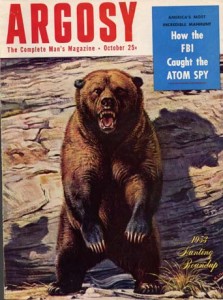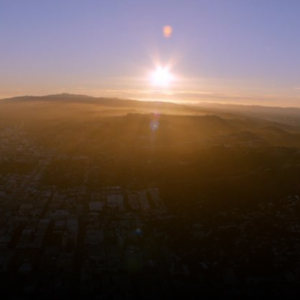Why I Wrote the Story

For some time, I have been planning to write a novel about the aftermath of the 1992 Los Angeles Riots (also known as the Rodney King Riots, the South Central Riots, the 1992 Los Angeles Civil Disturbance, and the 1992 Los Angeles Civil Unrest, and, in the Korean American community as Sa-I-Gu). In fact, I got about a third of the way through writing it before I abandoned the project back in the mid-90s.
A couple of years ago I decided to restart the novel. In preparation, I thought I would write a few stories, one for each of the main characters. The purpose of each story was to focus on some aspect of the character’s personality that is key to their role in the novel, and further, show some event that helps form that aspect of their character.
In Dean™s case, the aspect of character I wanted to show was how he became more active politically. Because Dean is the main character, the story should probably be titled “Young Man Blues.” But “Will Kill for Food” is so much more interesting, at least to me. I think it also expresses a certain desperation that most of the characters in the story experience, which is an undercurrent of the story.
I finished writing this story in May 2011. The original was in eight sections. I edited the story in places to meet the word-length requirements for JukePop, and to suit the serial format better. I think the changes improved the story.
How I Wrote the Story
Once I knew the basic experience Dean would have in the story (defending Uncle Jun™s store), I needed a plot. The plot I settled on came from two sources.
First, I knew we had to meet Dean before the verdict in the Rodney King case was announced (Wednesday), and that we had to stay with him until he decides to join the Koreatown peace march (which takes place Saturday, the day after the story ends). I also knew I needed quiet time in the series of events to get some background in on Dean, Jun, and Ron. Dean™s friend John appears in the beginning and end of the story as a constant by which to measure Dean™s emotional change.
Second, the more I thought about and researched the setting of the L.A. Riots, the more it resembled a Western. In a Western, the threat of violence is present in a far more natural way than in any other genre (except maybe prison or war stories). I mean, every man on the street in a Western is openly armed for one thing. And the idea of taking care of yourself “ through violence if necessary “ rather than relying on the law, is taken for granted.
I intentionally threw in some references to Westerns (œHolding down the fort, œCalvary is on their way) to make the point clearer.
I borrowed the structure from an Elmore Leonard Western short story. In that sense, œWill Kill for Food can be read as an updated version of Leonard™s œTrouble at Rindo™s Station. (It™s a great story, and is reprinted in a couple of his anthologies if you care to read it.) In the original, a renegade warrior takes over control of a tribe from a peaceful chief, arguing that strength, not tradition, determines leaders. The renegade warrior gathers a group of others and jumps the reservation to attack Rindo™s Station. In the end, a reservation agent trapped inside the station (who’s actually a good guy for a change) subdues the renegade in a fist fight.
In my remake, one gang that takes over another™s turf by moving beyond their neighborhood (œjumping the reservation) and subduing the leader of the gang by force. Also, while Leonard’s protagonist was a normal Western hero, in the sense that he’s brave and accustomed to violence, Dean has to overcome his fear in order to fight off the threat of Willy Dobson and his gang.
Limitations of My Approach
An interesting aspect of looking at this story as an updated Western is that it freed me from feeling a need to get into the reality of the L.A. Riots from different points of view. In œRindo™s Station, there is no discussion of the morality or fairness of having Native Americans confined to reservations. They simply are, and when they leave the reservation, it often means trouble for the white population nearby. Similarly, in my story, there is no discussion of the causes of the civil unrest. I did not want to create a historical novella. The aspects of the riots Dean saw on TV were representative of what the media chose to show and what he chose to focus on. As a non-political individual, I think that makes sense in the context of the story. A better piece of work (a truer Historical or Literary fiction) might go into greater depth on how wrenching an experience the riots were to different communities, even without the threat of a gang at your front door. That just wasn™t my aim here.
Another interesting thing about the story is that by accomplishing what I set out to do, I had something of a failure on my hands. After months of research, writing, and editing, I came to the end only to find that I didn™t think this was viable as a publishable story exactly because I did what I set out to do; that is, create a character study based on a Western. Also, by focusing on including what I thought I needed to make the story complete, it ran well beyond short story length (of which there are many places to publish) and into novella length (which has few outlets). By chance, I stumbled on the publisher (Black Hill Press), the contest (Summer Reading Project), and the serial-form website (JukePop). Otherwise, this story would probably never been read by anyone.
Finally, there is a fair amount of information I intentionally left out of the story. Some people commented on them: How did John and Dean meet? What happened to Tanya’s mom (Jun’s wife)? All of this information and more besides actually resides in other stories I’ve written or intend to write. Rather than repeat the information in every piece, I thought I would only repeat it as necessary. It may be a bad decision, but that’s where things stand now.
